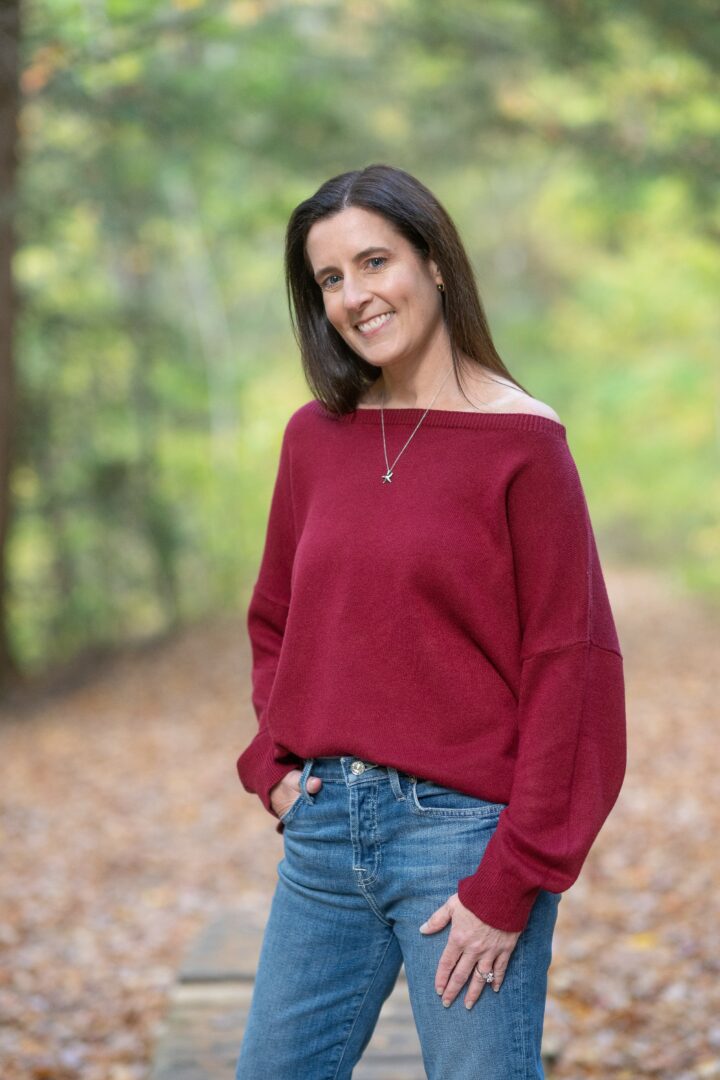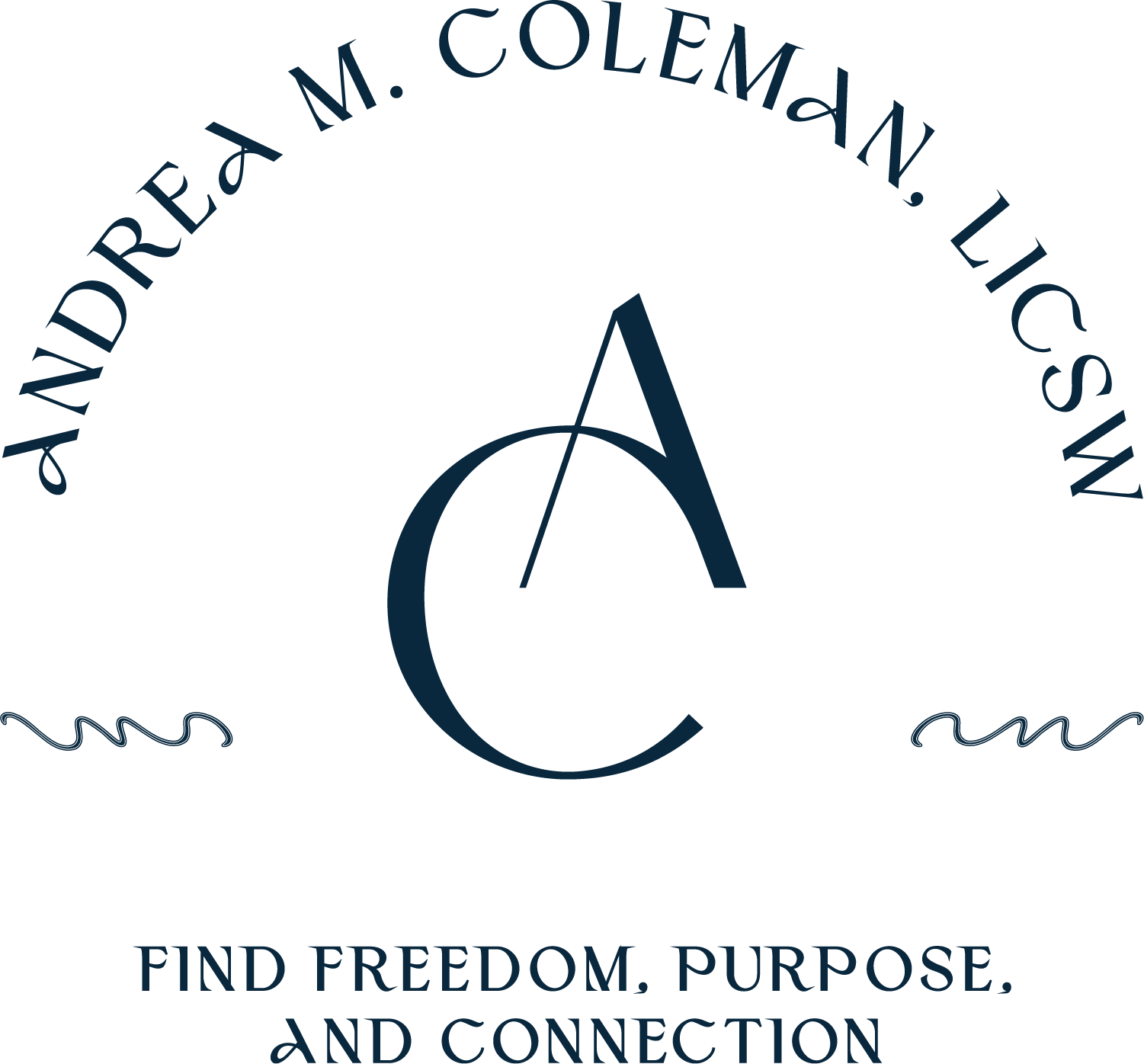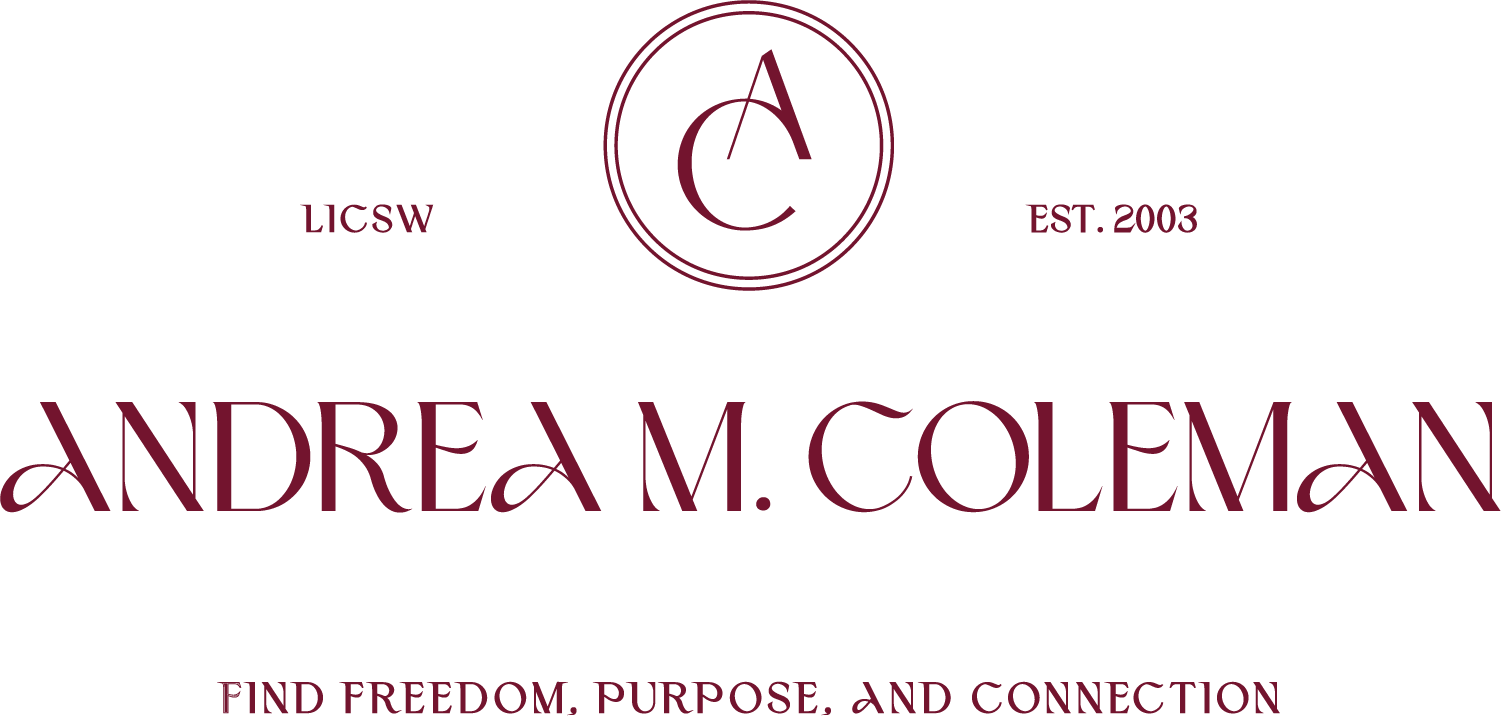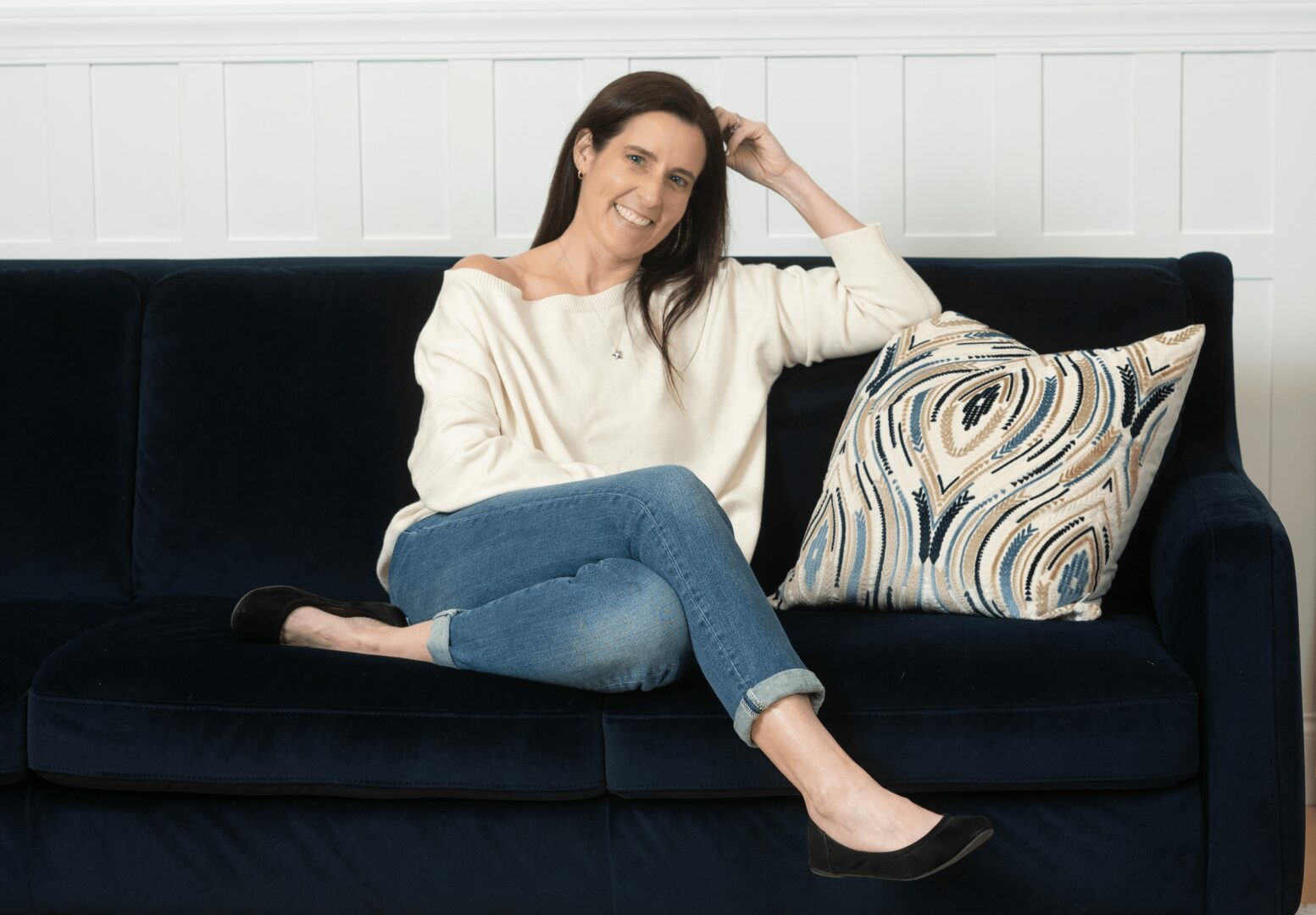We’re excited to introduce you to the always interesting and insightful Andrea Coleman. We hope you’ll enjoy our conversation with Andrea below.
Andrea, thank you so much for joining us. You are such a positive person and it’s something we really admire and so we wanted to start by asking you where you think your optimism comes from?
My optimism comes from witnessing transformation firsthand—both my own and my clients’.
When I was struggling with an eating disorder in high school and college, there were days when I couldn’t imagine a different life. Yet through therapy and support, I found my way to recovery. Everything I cherish now—my marriage, my children, my friendships, my work, my inner peace—exists because healing was possible for me.
My optimism isn’t naive positivity. It’s battle-tested hope. It’s watching a client who once counted every calorie enjoy a meal without anxiety. It’s seeing someone who felt unlovable build meaningful relationships. It’s the privilege of carrying hope for clients until they can carry it themselves. I’ve seen this pattern hundreds of times in my therapy room—people arrive desperate, fearing that they will always have to live ‘this’ way, only to discover their capacity for growth and change.
On my office shelf, I have a book titled ‘My Voice Will Go With You’ that perfectly captures a simple but powerful truth– sometimes, before we can believe in our own healing, we need someone else to believe in it first. Having been on both sides of that experience, I hold an unshakable faith in what’s possible.
The world can be hard. Mental health struggles are real. But we all have an immense capacity to heal and grow. This isn’t wishful thinking—it’s the evidence-based reality I’ve witnessed over and over again.

Let’s take a small detour – maybe you can share a bit about yourself before we dive back into some of the other questions we had for you?
I am a Licensed Independent Clinical Social Worker across seven states allowing me to offer virtual therapy to clients throughout the Country while maintaining my in-person practice in Western Massachusetts.
Throughout my 20+ years in private practice, I’ve specialized in working with emerging adults (ages 16-30), focusing particularly on eating disorders, anxiety, depression, trauma, ADD and supporting women and members of the LGBTQIA+ community. This demographic focus has allowed me to develop deep expertise in the unique challenges facing young adults as they establish their identities and navigate increasingly complex social pressures. My goal is for my clients to feel like we are partners in a journey of discovery, uncovering their authentic selves beneath the noise of self-judgment, worry, and societal expectations.
My personal journey to becoming a therapist began during my years of recovering from my own eating disorder. I knew early on that someday I wanted to be able to ‘give back’ what I had been ‘given’. My educational journey however, began at the University of Pennsylvania, where I earned my BA in Psychology in 1994, followed by my MSW from The Ohio State University in 1999.
My training initially focused on working with adolescents and their families in various settings—community mental health centers, residential treatment facilities, and partial hospitalization programs. During these formative years, I developed expertise in treating anxiety, depression, eating disorders, PTSD, substance abuse, and self-injurious behaviors. I’ve deepened this foundation with additional training in Cognitive Behavioral Therapy (CBT), Acceptance and Commitment Therapy (ACT), and Dialectical Behavior Therapy (DBT)—approaches that give my clients practical tools for managing difficult thoughts and emotions.
As a result, my approach draws from multiple therapeutic traditions while remaining flexible and individualized. I’ve learned that no single methodology works for everyone. Instead, I adapt my techniques to my clients’ specific needs, goals, and circumstances.
My work is so special to me because I get to witness people becoming free. Free from the exhausting mental chatter that tells them they’re not enough. Free to trust their inner voice. Free to build lives aligned with who they truly are rather than who they (or society) think they should be.
There’s something powerful about sitting across from someone who finally realizes they don’t have to dim their light for anyone else. That moment when a client recognizes they can be unapologetically themselves—it’s like watching someone put down a heavy backpack they’ve been carrying their whole life.
I bring my whole self to this work—authentic, compassionate, and fully present . I’m direct but always kind, knowledgeable without ever being condescending, and deeply committed to healing while making room for humor (because sometimes, laughter really is the best medicine). My clients will always know exactly what I am thinking, and I believe that kind of transparency creates the trust and safety needed for real growth.
I’m excited to share that I’ve recently refreshed how I present my practice to the world! I’ve completed a branding and logo overhaul that better captures the warmth and authenticity at the heart of my work. And my newly designed website now makes it easier for potential clients to find me and understand my approach.
I’ve also started writing on Substack where I share thoughts specifically on eating disorders, mental health, recovery, and living authentically. It’s my way of extending support beyond my therapy room and joining larger conversations about wellbeing.
In the future, I hope to begin to offer eating disorder training and supervision to other professionals. Working with people who struggle with eating disorders is truly a specialty and requires specific knowledge that is not taught in graduate school programs. I would love to be a part in helping to grow the network of professionals who are adept at working with this particular population.

There is so much advice out there about all the different skills and qualities folks need to develop in order to succeed in today’s highly competitive environment and often it can feel overwhelming. So, if we had to break it down to just the three that matter most, which three skills or qualities would you focus on?
1. The Courage to Be Authentic
Authenticity isn’t just a “nice-to-have: quality–it’s the foundation of healing. Recovery requires peeling away layers of who we think we should be to discover who we really are. In my work with clients, authenticity shapes everything we do. My clients never have to wonder what I’m thinking and my transparency helps to create a space where they too can begin dropping the exhausting performance of perfection and start embracing their whole selves—messy parts and all. Often, what we discover are that the messy parts we try to conceal hold the keys to our healing. The energy once spent on maintaining appearances becomes available for growth.
2. The Ability to Hold Hope for Others
Perhaps the most transformative skill I developed was learning to carry hope for people who temporarily can’t hold it for themselves. When I was struggling, someone held that space for me—believing in my ability to recover when I couldn’t see a way forward. Now, I strive to offer a voice of unwavering belief that stays with clients between sessions and even years after our work concludes. I’ve witnessed countless times how this steadfast confidence in someone’s capacity to heal can sustain them through their darkest moments until they can reclaim that hope for themselves.
3. The Understanding That Connection Heals
When we are deep in struggles, what can ultimately save us is meaningful human connection. We heal in relationship, not in isolation. The eating disorder, anxiety, depression—they all thrive in silence and secrecy–convincing us we’re alone, different, and beyond understanding. Breaking through that isolation and forming authentic connection is profoundly healing. This is how I approach therapy: not as an expert fixing broken people, but as a fellow traveler who knows parts of the terrain well. I understand that when clients say they want to feel “normal,” what they’re really seeking is belonging—to feel seen, known, and accepted as they are. This insight guides everything from how I structure sessions to how I help clients rebuild and create new relationships in their lives.
My overall advice for young therapists who are starting out on their journey is to embrace your own self! Learn about who you are and bring that whole self into your work. Additionally, though, I will never forget the best advice I ever received when I was starting my training in community mental health. I was young and excited and heading out for the first time with my supervisor (who became a great mentor to me) to go meet with a new client. My demeanor at the time could only be described as an excitable young puppy. I couldn’t keep my enthusiasm at bay and kept asking her over and over ‘what are we going to DO?’ Finally, in the car, she grew exasperated, turned to me and said: “Andrea, we are not going to DO ANYTHING. We are going to LISTEN!” I have never forgotten those words and they form the absolute foundation of my work.

What do you do when you feel overwhelmed? Any advice or strategies?
Like everyone, I experience moments when the world feels too loud, too fast, or too much. When overwhelm visits me, I’ve learned to treat it not as a failure but as a message—my mind and body telling me something important needs attention.
My first strategy is actually quite simple: I get myself near water. Water calms me, centers me, reminds me that even powerful currents eventually find their way to stillness. I also lean heavily on the practices I encourage in my clients. I try to notice the judgmental voice that inevitably shows up during overwhelm—the one that says I should be handling things better, doing more, being more—and I approach it with as much compassion as I can muster. That voice served a purpose once, trying to protect me, to get me to be my best self, but I don’t need its protection in the same way anymore.
Sometimes overwhelm requires me to return to basics. As someone who recovered from an eating disorder, I’ve learned the profound importance of physical self-care—adequate sleep, regular meals, movement that feels good rather than punishing. These aren’t luxuries; they’re the foundation that makes handling emotional intensity possible.
And perhaps most importantly, I reach for connection—within myself and with others. I connect with myself by engaging in activities that bring me peace and relaxation. A weekend with a good book or mindless reality tv is always a great antidote to overwhelm for me! And I reach for connection with others. Worries grow larger in silence. When I share what I’m experiencing with trusted family, friends or colleagues, the burden immediately lightens. There’s relief in speaking the truth of our experience and having someone respond with “me too” or simply “I hear you.”
If I could offer one piece of advice about managing overwhelm, it would be this: treat yourself with the same kindness and understanding you would offer a loved one. We’re often our own harshest critics, especially when we’re struggling. But healing happens in gentleness, not in judgment. Sometimes the most powerful response to overwhelm is simply acknowledging: “This is hard right now, and that’s okay. This too shall pass.”
Contact Info:
- Website: https://andreamcoleman.com
- Instagram: andreamcolemanlicsw
- Other: Substack: https://eatingdisordertherapist.substack.com/

Image Credits
Photos of myself: Shana Sureck, Photographer
Branding Images: Emma Tuthill
so if you or someone you know deserves recognition please let us know here.




